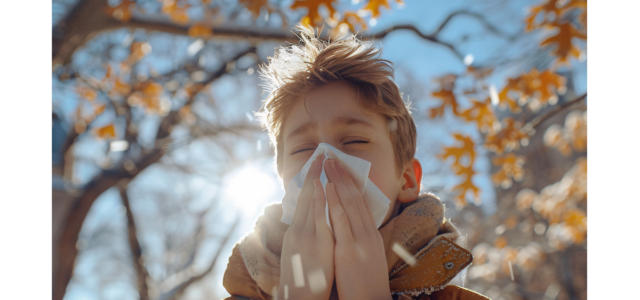
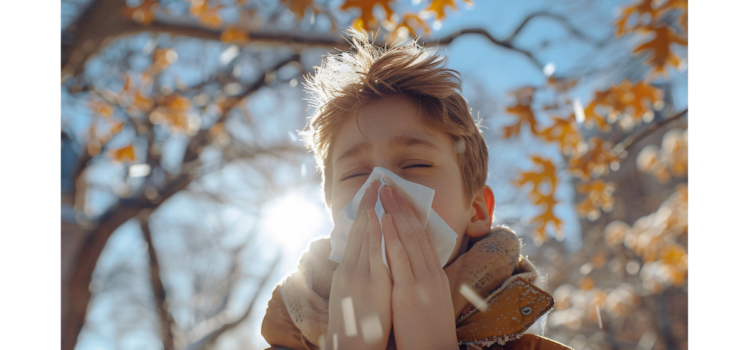
Dealing with Fall Allergies: Health Tips For Athletes
BlogHealth & FitnessMulti-SportNewsOutdoor September 25, 2024 Lauren Keating 0

Seasonal allergies during the fall are an unwelcome addition to an athlete’s training routine. The following tips aim to help athletes manage their allergies so they can perform their best during outdoor sports.
Fall is a season packed with sports. The exciting outdoor activities combined with its beautiful foliage and cooler temperatures make it a favorite season of many. It also marks the arrival of pollen, mold spores, and other allergens that can interfere with training and performance.
Ragweed, mold spores, and dust mites are just a few common culprits that thrive during this time, often causing symptoms like sneezing, congestion, itchy eyes, and even shortness of breath. However, with the right strategies, athletes can manage their symptoms and continue performing at their best. Here are some essential tips for dealing with fall allergies.
Consult an Allergist
Athletes who suffer from symptoms linked to fall allergies should consult an allergist. An allergist can perform tests to identify specific triggers and recommend appropriate treatments, including allergy shots (immunotherapy) that may provide long-term relief. This proactive approach can lead to better management of symptoms, allowing athletes to focus on their training.
Take Over-the-Counter Medication Daily
An allergist may instruct the athlete to take over-the-counter medications. Generally, these need to be taken daily. Antihistamines help alleviate sneezing, runny noses, and itchy eyes, while decongestants can relieve nasal congestion. It’s essential to consult with a healthcare professional to find the right combination that won’t interfere with athletic performance or cause drowsiness.
Consider Natural Remedies
Some athletes may prefer natural remedies to manage their symptoms.
Options like saline nasal rinses can help clear pollen from the nasal passages, and local honey is often used to help build immunity to local pollen over time. Always talk to your allergist before adding a natural remedy to your allergy plan.
Monitor Pollen Levels
The first step in managing allergies is to stay informed. Athletes should monitor local pollen forecasts using weather apps and websites. By being aware of high pollen days, athletes can plan their outdoor training sessions accordingly, opting for late evening workouts when pollen levels are usually lower. If the athlete knows a practice, game, or meet occurs during peak pollen counts, plan accordingly by making sure to take any medications. Bring a change of clothes to keep pollen exposure post-physical activity low.
Adjust Your Training Routine
On days with high pollen counts, consider adjusting your training routine. Indoor workouts can be a great alternative; utilize gyms, tracks, or even home workouts to avoid exposure. Cross training with swimming or cycling indoors can also help maintain cardiovascular fitness without the risk of allergy flare-ups.
Wear Protective Gear
When exercising outdoors, wearing protective gear can significantly reduce allergy symptoms. Consider wearing sunglasses to shield your eyes from pollen and a mask to filter out allergens while breathing. A hat can also help keep pollen from settling in your hair and falling onto your face.
Optimize Your Environment
Creating a clean and allergen-free environment at home can help athletes reduce overall exposure. Regularly wash bedding and workout clothes in hot water to eliminate dust mites and mold. Keeping windows closed during high pollen seasons and using air purifiers with HEPA filters can also help maintain indoor air quality.
Stay Hydrated
Hydration is crucial for athletes. It becomes even more important when dealing with allergies. Drinking plenty of water helps thin mucus in the airways, making it easier to breathe. Staying hydrated also supports overall health and recovery, which is essential for maintaining performance levels.
Pay Attention to Your Body
Listening to your body is key. If you notice that symptoms worsen during specific activities or weather conditions, be mindful of how you respond. Adjust your training intensity, duration, and frequency as needed. Rest and recovery are just as important as the workouts themselves, especially when allergies are at play.
Conclusion
Fall allergies don’t have to sideline athletes. By staying informed, adjusting training routines, utilizing protective measures, and seeking appropriate treatments, athletes can continue to perform at their best.




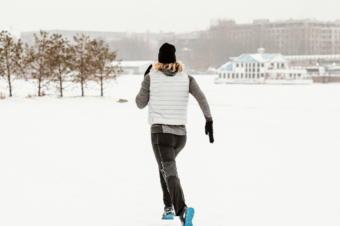
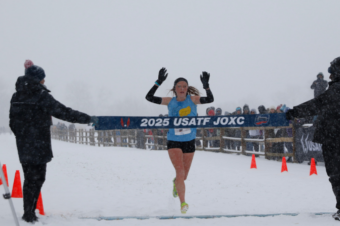
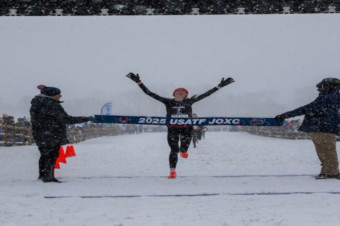
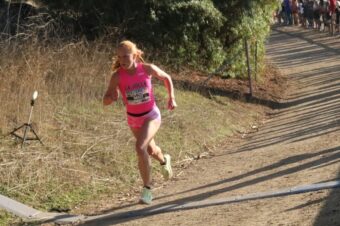

No comments so far.
Be first to leave comment below.